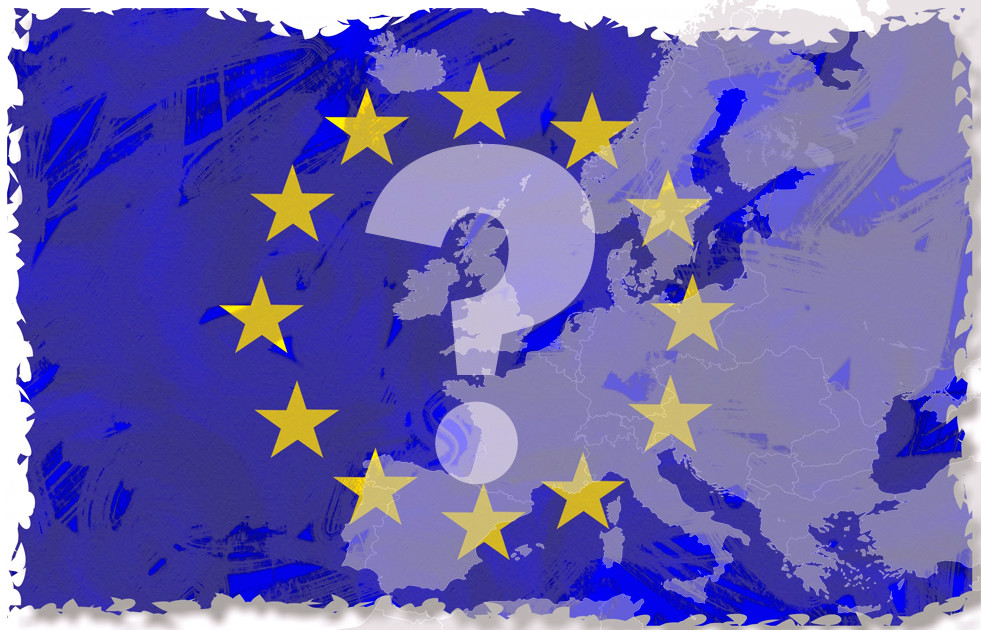6 June 2016

In or Out? It’s the question that’s dividing the nation and there’s not long before decision-making time. On 23rd June, voters will take to the polls to have their say in a national referendum on whether the UK should remain part of the European Union or not.
A landmark event such as this makes it an even more fascinating time to be studying the subject of Government & Politics at A Level, and just as the debates rage on in television shows, newspapers, pubs and living rooms across the country, so they do in the Politics classrooms of The Sixth Form College. The question of whether to #Remain or #Leave is dividing loyalties in families and friendships, and, with this referendum being the first opportunity that many in the college have had to vote, two of our leading Politics students, plus a political expert who visited the college for a special revision session, have had their say.
“This is the most important vote since 1973 when we first voted to join the EEC (European Economic Community), as it was then,” says A Level student, James Mawdsley.
“It’s more important than any General Election that we’ve had – this is the direct future of British lives and the British Economy, for now and the future. You currently have the opportunity to live and work anywhere in the member states in Europe, and even study abroad at no further cost than in the UK. We have our rights and freedoms ensured by the European Union and their legislation.”
James, 18, who joined us from St John Plessington Catholic College, is a member of the Labour Party and a staunch supporter of remaining in the EU. He is part of the ‘Britain Stronger in Europe’ independent Labour Party campaign and works on pop-up street stalls in towns and train stations across Wirral, trying to inform others of the benefits of ‘remaining’.
James, who studies Sociology and Religious Studies along with Government & Politics, said: “My view is that the EU is the biggest job creator in the UK at the moment. Every job in the next 30 years will either be directly or indirectly related to the EU, through expansion in modern technologies or in industry. Reducing our input into that free market would be a missed opportunity for both us and the generations to come.”
Addressing the issue from the other side, James continued: “The argument coming from people who want to leave is based on the idea of sovereignty and that the European Union has damaged the credibility of the UK in making its own decision and its own laws through legislation.
“I would say that a lot of that legislation is the protection of workers’ rights. Through the EU we’ve got paid maternity leave, and protection of paid leave so if you go on holiday you’re guaranteed to have some sort of pay duty.”
Depending on where you read it, the figures differ vastly about how much Britain pays into the EU every week and how much we get back out of it. Wherever the information comes from, however, the numbers are always greater going into the Union fund than what we see directly coming back out.
James explained: “That money is paying for membership to the free market, membership to the European Convention of Human Rights and everything else tied to Europe, plus direct investment back into EU infrastructure. It’s not outside the realms of possibility that the outgoings as far as the EU goes, per week, would be equalled with paying duties and taxes on trading from outside the Union.”
Sam Pelan thinks otherwise.
“European legislation is powerful enough to override any rule that we want to make in this country. It puts huge constraints on Parliament.”
Sam, 18, was home-tutored before coming to The Sixth Form College, and believes that sovereignty of government is crucial for our country.
The Economics, Government & Politics, History and Statistics student said: “While the EU is beneficial for a lot of countries, particularly the poorer nations, it’s not at all for Britain.
“We have no real control over our own governance as we’re controlled by the EU Commission that we have no power over at all. While they may have our best interest at heart, we can never know that for sure. We can always be sure that the government that we choose will want the best for us. Not just on individual issues but on a grand scale and in the long term, we shouldn’t be ruled from elsewhere.”
“Nobody knows who these people on the EU commission are so they have no real right to watchdogs over our government. If you ask anyone on the street to name someone on the Commission, they wouldn’t be able to, but ask them about David Cameron, or Boris Johnson, or George Osborne then they’ll have an opinion. That makes it a lot easier to hold government to account for their actions.”
Sam believes that any economic hit that the UK takes if we leave the UK would be extremely short term and ‘nothing like the 2008 recession’, with the long term effect being a probable benefit for the economy.
Addressing the financial outgoings in our current EU agreement, Sam said: “People do say that the net loss that we make handing money over to the EU will be beneficial in the long term as the poorer countries then become richer, allowing them to trade with us and buy our produce. My view is that if this is the case, then why not just give these countries the money ourselves? It would be faster and cheaper than having to go through Europe in order to do so.”
Sam concluded: “You should look after your personal interests first. If you’d be personally affected by leaving the EU then vote that way, but if you’re not, or you think of the national picture rather than individual, then vote to leave.”
The Sixth Form College Politics students were lucky enough to have a pre-exam, special revision session with a visiting leading political academic, author and teacher in Neil McNaughton.
On the referendum debate, Mr McNaughton said: “I think the problem with the whole issue is that all of the predictions about what will happen if we leave, or if we stay in, are speculation. They’re being presented as facts but the arguments are speculative, which makes it a very difficult decision.”
Mr McNaughton continued: “My personal view is a kind of visceral, emotional one, which is that we are better off as part of a bigger organisation. I think many people feel that way. It’s largely down to that: what the major disadvantages and advantages are of being in that larger organisation. There are, of course, disadvantages, and I understand that in relation to being regulated by others rather than us.”
Leaving us with a prediction of the outcome of the vote, Mr McNaughton concluded: “I think it’ll go to remain, for the emotional reason. I think it’ll be very close but a lot of people are undecided. My feeling on the whole about referendums is that people who are undecided tend to go for the status quo. I think it happened in Scotland in 2014 when they voted against independence and I think the same thing will happen here. I’m predicting something around a 58% vote to stay and 42% to leave – the difference being the undecided.”
.png)

.jpeg)
(3).jpg)

.jpg)








_(403x640).jpg)